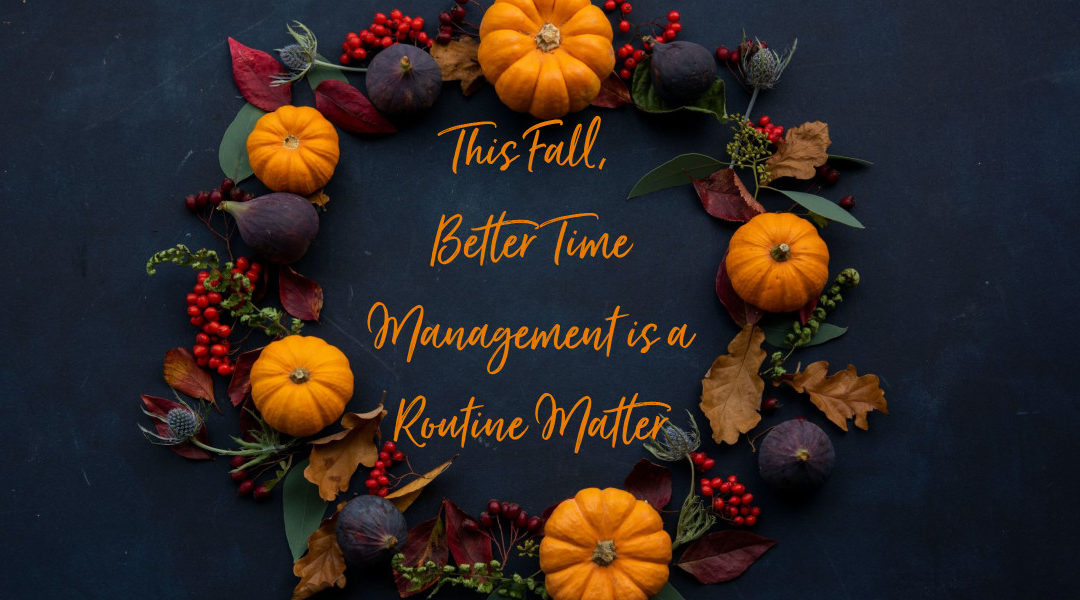As it turns out, being locked inside your home for months during a global pandemic isn’t great for consistency.
Those of us who weren’t essential workers watched our routines break down basically overnight. It looked a little different for everyone.
Maybe…
- you started staying up later at night and sleeping in later in the morning, or started sleeping a lot more or less than you normally did
- you began snacking throughout the day and stopped eating regular meals
- gym closures meant you stopped exercising regularly
- pandemic stress kept you from concentrating on a book, so you started watching TV and scrolling through social media before bed every night instead of reading
The Breakdown in Routine
It was happening to a lot of people who were cooped up at home. The breakdown in routine wasn’t all bad; for many people, losing their normal routine created a lot of free time that they used for family game nights, neighborhood walks, fostering pets, baking and other rewarding activities. And there was comfort in it being a collective experience, as so many people were all struggling with the same kind of unmoored feeling during those first frightening months.
But that was then, when the crisis was new. What about 18 months later, as we move toward another challenging and unpredictable winter?
Did your routines ever recover? Did you develop new routines that are serving you well and supporting your time management needs?
Or are you still stuck in unpredictable chaos, and still feeling just as out of control of your time as you felt in those first few weeks of lockdown?
That’s okay! In fact, that’s great—because it means you can start fresh, and create new routines that are tailored exactly to your life and needs right now.
Routines Support Sleep, Time Management and More
Everyone needs routines. They create security, anchoring you in time and allow you to anticipate what’s coming next. They’re like roadmaps that help you navigate unpredictable landscapes. You might not know what’s going to happen with COVID variants or that difficult client or your partner’s travel schedule—but your routine can create enough predictable consistency to help you ride through those uncertainties without spiraling.
Routines can create useful structure all through your day. A morning routine may help you arrive at your desk feeling calm, energized and ready to focus on work. Your bedtime routine can help you unwind, relax and fall asleep quickly. You might have specific weekend routines that let you connect with loved ones and allow you to get all your important housework done before the week starts. And the routines you create for work can help you get the important things done so you’re able to enjoy downtime without worrying about everything that’s slipping through the cracks.
What kind of a routine will make this fall and winter as smooth and stable as possible?
Again, it’s different for everyone! As you think about creating routines that support time management and productivity, and help you feel grounded in your daily life, consider these questions.

- What am I craving more of? What do you want more of in your life? It might be more physical activity, more time with your partner, more creative pursuits, more of a certain kind of work— whatever you crave, use your routines to create time and space for it.
- What are the things I’m struggling with the most at work? Are you wasting a ton of time on emails? Do you feel overwhelmed by a disorganized desk covered in paper? Are you stressed by your calendar constantly shifting and never knowing what the next day will bring? Routines aren’t just for getting up in the morning and winding down at night; work routines can be an important part of creating peaceful productivity.
- What’s the most challenging time of my day? Use routines to help you navigate specific pain points during the day. For example, parents of young kids might find that dinnertime is the most stressful and chaotic part of the day. Maybe you’re always scrambling to answer emails while you corral cranky kids and get dinner on the table and then cleaned up. Creating new routines for that hour can eliminate some of the chaos by letting everyone know what to expect. Part of your new routine might even include putting your phone away during that hour so your attention isn’t split in so many directions at once.
Need Help?
I know that creating routines that actually work for your life can be intimidating, especially when you don’t know where to start.
I’m here for you! A one-on-one Strategy Session can help you understand what’s possible for you, how we can help, and get you clear on your next best move to get a grip on your time.
Just click here to set up a time to chat with me.
Here’s to a peaceful and productive fall, no matter what comes your way!
Sarah
- Time Management Strategies to Help You Land the Big Clients You Want - April 17, 2024
- Stress Management for a Productive Spring: Are You “Normal”? - April 4, 2024
- 3 Things Realtors Can Control in a Busy Spring Real Estate Market - March 15, 2024



